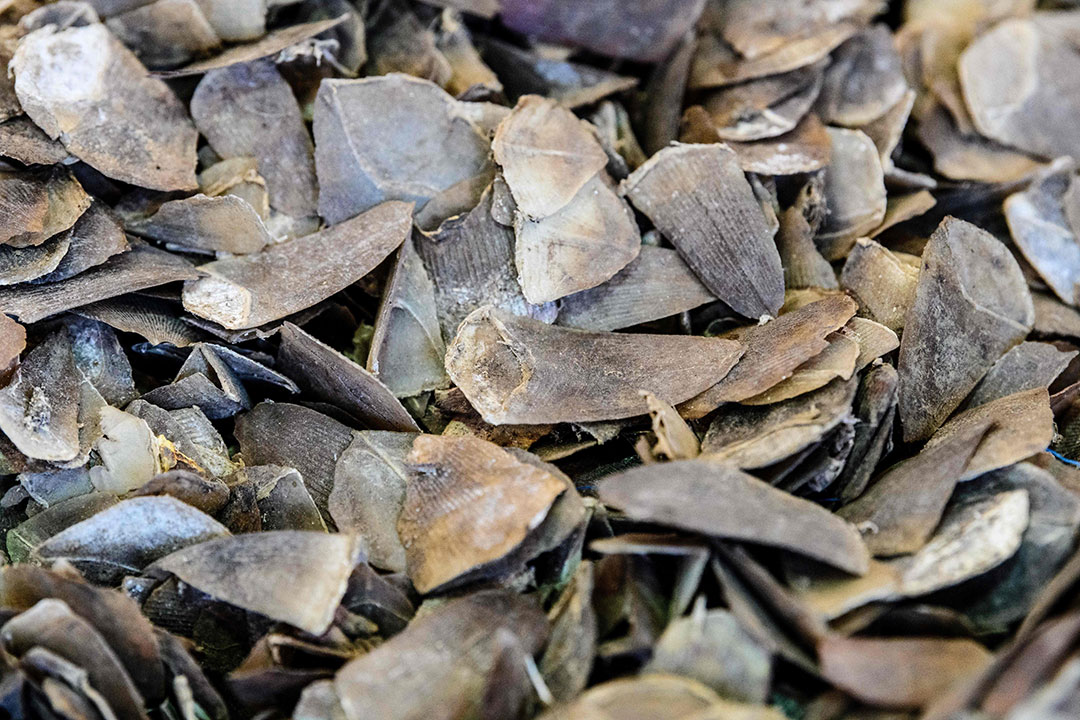ADF STAFF
Despite setting off two global pandemics — SARS and COVID-19 — in the past 20 years, demand for wild animals and animal products shows few signs of abating. This market driven largely by Chinese consumption continues to decimate many of Africa’s most iconic creatures and drives others to the brink of extinction.
Although the Chinese government has closed wildlife markets and banned the consumption of wild meat, it also has created legal loopholes for traditional Chinese medicine (TCM) that continue to provide a market for wild animals and their body parts.
Researchers have traced the origin of COVID-19 to the wildlife section of the Wuhan wet market in central China. The market sold fish, chicken and other more typical foodstuffs, but the wildlife section sold more exotic creatures. This included bats, pangolins and other animals traded for use in TCM or as unusual meals for wealthy customers.
Scientists believe the new coronavirus that has spread death and economic devastation around the globe since January may have passed from wildlife to the first human victim in the crowded, unsanitary conditions of the wet market’s wildlife section.
Since the outbreak of COVID-19, the Chinese government has closed wildlife markets, banned consumption of wild meats and promised to strengthen legal protections for wildlife. Wuhan banned the consumption of wild meats for five years. Beijing banned markets after a COVID-19 outbreak there in June.
Given the government’s poor history of dealing with such outbreaks — markets reopened after a brief shutdown due to SARS in 2003 — experts say it’s not clear how long any of these changes will last or how strictly they’ll be enforced.
“The big question is, now that there has been this temporary ban, will it now be enshrined through an amendment into the Wildlife Protection Law?” Edward Cunningham, director of Harvard University’s Ash Center China Programs, told Deutsche Welle. “The devil is in the details of how you would then enforce not only current measures but also any legal change.”
Any actions taken could be rendered toothless by loopholes in favor of TCM, which often uses bones, organs and other body parts from wild animals, critics say.
“There is nothing to stop farmers continuing business as usual but pivoting to selling their farmed wild animals for traditional Chinese medicine instead,” Peter Li, an assistant professor of East Asian Politics at the University of Houston, told Reuters.
A weak regulatory system also complicates enforcement, particularly as trafficking shifts more online and uses commercial package shippers to transport items.
“Right now, there isn’t enough regulation specifying the responsibility of online platforms,” Zhou Jinfeng, head of the China Biodiversity Conservation and Green Development Foundation, told Al-Jazeera. “If they don’t play their role and are not able to step up their monitoring mechanisms, stopping online wildlife trade will be difficult.”
So far, wet markets have been allowed to reopen without their wildlife components, but China’s National People’s Congress closed its yearly meeting at the end of May without taking action to curb the wildlife trade, which Sciencemagazine has reported involves up to 6.3 million Chinese residents and is worth as much as $18 billion annually.
Much of China’s wildlife trade includes animals farmed within the country, a program the Chinese government has encouraged since the 1980s to lift rural citizens out of poverty. Across the country, 54 species of wildlife are farmed for their meat, fur or organs used in TCM.
The government continues to subsidize farmers who raise everything from peacocks to bamboo rats for slaughter in wildlife markets. The legislature recently categorized 33 animals, including several species of deer, reindeer, alpacas and ostriches, to be edible “special livestock” rather than wildlife.
On top of that, China remains the primary market for legal and illegal animals and animal parts from Africa that includes poached rhino horns, abalone and lions used for TCM. Pangolins, now banned for human consumption, remain a key ingredient in some TCM concoctions.
“Sadly, the wildlife crisis in Africa has coincided with China’s massive economic presence on the African continent,” Li told ADF.
According to Li, between 2009 and 2017, China was the top destination of illegally trafficked elephant ivory. During the same period, China also was one of the top destinations of illegal rhino horn trafficking. In the past decade or so, China also has been the main destination of African elephant calves, rhinos, pangolins, chimpanzees and other wild animals.
“China should crack down on the trade if it does not want its reputation to be destroyed by the lawless Chinese traders who cannot care less about African wildlife, the livelihood of the locals, and China’s own reputation,” Li said.
China’s complex wildlife trade — from domestic breeding to international poaching and TCM practitioners — creates a situation fraught with potential for cross-over infections like COVID-19, Li said.
“China has many laws that could have curbed the trade,” Li told ADF. “But China’s wildlife trade was in a complete lawlessness situation for too long.”


Comments are closed.